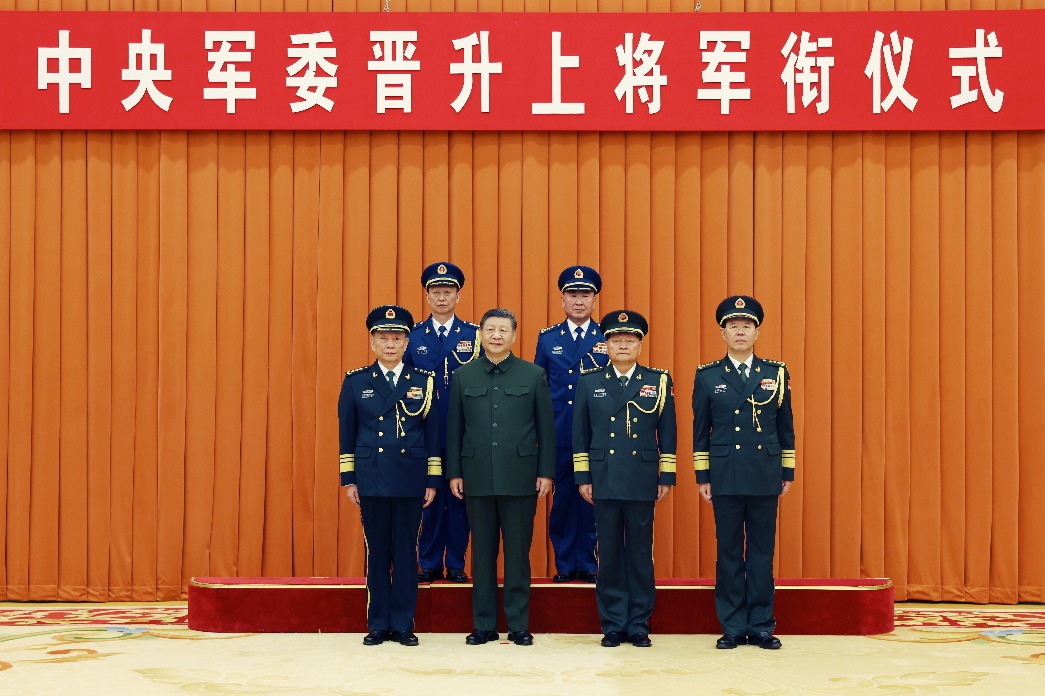Arbitrary economic sanctions illegal and ineffective


The United States, the European Union and several other economies have imposed several rounds of economic sanctions on Russia over the past weeks in order to punish the country for its actions in Ukraine.
This is despite the fact that economic sanctions have, in the past, failed to achieve their goals, as in evident in the cases of Iran, Syria, the Democratic People's Republic of Korea, Venezuela and Cuba, which are the most sanctioned countries by the US and its Western allies. The sanctions have, however, led to huge suffering of ordinary people in those countries, in particular women and children.
I have visited Cuba three times and seen for myself the horrible human sufferings caused by the US embargo of the small island country since the early 1960s, a brutal embargo that has been overwhelmingly condemned by the United Nations General Assembly every year for the past three decades.
In their latest rounds of sanctions on Russia, US and EU leaders have naively assumed that their severe sanctions will cripple the Russian economy, thereby forcing the population to revolt against the government. But nothing like this has happened in the past. What we have witnessed were often to the contrary: The local population tended to rally even more closely around its government and leaders to resist bullying by foreign powers.
It is therefore shocking to hear Western government leaders and politicians bragging about how their harsh sanctions have destroyed a country's economy, such as causing currency depreciation and price hikes. It literally means they don't care about the sufferings of millions of ordinary people.
In a globalized world, economic sanctions often mean huge disruptions in global supply chains, which make those sanctions a collective punishment for the entire world, especially the poor countries.
Instead of easing the tensions, economic sanctions tend to escalate them, as well as intensify hostilities, and make it even more difficult to resolve conflicts through peaceful talks.
Unlike sanctions endorsed by the United Nations Security Council, unilateral economic sanctions imposed by the US and its Western allies totally lack international legitimacy. This is especially true for the US which has been recklessly abusing its economic, financial and military might to sanction dozens of countries, including on China.
In the past, the US also threatened to sanction EU companies which conducted normal trade with Iran after the Donald Trump administration pulled out of the Joint Comprehensive Plan of Action, popularly known as the Iran nuclear deal, in 2018 and re-imposed sanctions on Teheran. The EU protested against the move and later and devised the INSTEX financial tool to help its companies bypass US sanctions.
The US is again threatening sovereign countries, those that have normal economic and trade relations with Russia, and forcing them to choose sides. It is again warning countries in the same absurd way that former US president George W. Bush did to justify his devastating wars in Afghanistan and Iraq — "you are either with us or with the terrorists".
If the US is allowed to punish other sovereign countries which maintain normal trade relations with Russia, then the international rules and the world order will indeed have to be rewritten and replaced by power politics.
When I raised such questions at the European Commission's daily briefing on Tuesday, the spokesman said the EU's economic sanctions against Russia do not have extraterritoriality. But he wouldn't comment on the US sanctions which do have extraterritorial dimensions.
Economic sanctions have long proved to be ineffective in conflict resolution. Peaceful dialogues, which China has been calling for given its good relations with both Russia and Ukraine, are a better way of resolving the current crisis.
The author is chief of China Daily EU Bureau based in Brussels. chenweihua@chinadaily.com.cn
































